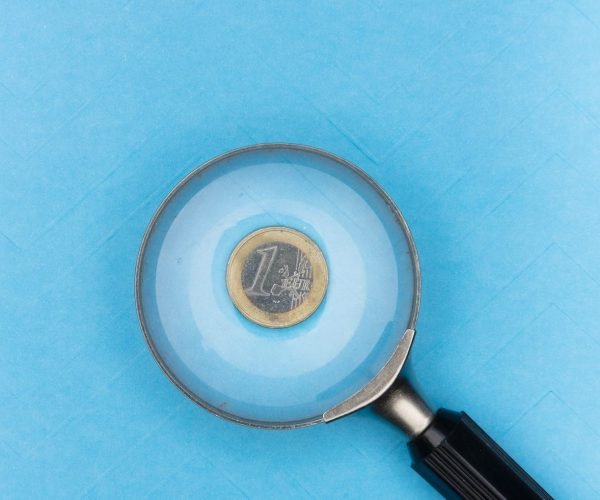Introduction
Cryptocurrency, a rapidly growing digital asset, can be daunting to navigate due to its susceptibility to various scams and fraudulent activities. According to United Nations Office on Drugs and Crime (UNODC), cybercriminals are constantly inventing new ways to misuse this technology for illegal profit.
This article aims at equipping you with vital knowledge on how to investigate cryptocurrency, ranging from identifying legitimate currencies, tracing transactions, looking into specific crime types, and best practices in the field of investigation.
Dive in; your journey towards mastering crypto investigations begins now!
Key Takeaways
- Cryptocurrency investigations are crucial in combating fraud and theft. Government agencies utilize specialized software to trace and analyze cryptocurrency transactions.
- To identify legitimate cryptocurrencies, look for readily available disclosure, verify project legitimacy, consult outside sources, be cautious of phishing scams, and conduct thorough research.
- Tracing and analyzing cryptocurrency transactions involve examining transaction IDs, addresses, and types of cryptocurrency. Blockchain analytics software is a powerful tool for investigation. Law enforcement coordinates with financial recovery efforts.
- Investigating specific types of cryptocurrency crimes includes Ponzi schemes, investment frauds, crypto romance scams, security breaches/theft, and market manipulation. It is important to be cautious and report any suspicious activities or losses to relevant authorities.
Understanding Cryptocurrency Investigations

Cryptocurrency investigations are crucial in combating fraud and theft in the digital currency world. Government agencies play a vital role in these investigations, utilizing specialist software to trace and analyze cryptocurrency transactions.
Risks of cryptocurrency fraud and theft
Cryptocurrency fraud is a serious worry. Many scams use cryptocurrencies to trick people and take their money. Sometimes these scammers fake all the things on a website to fool you.
This makes it easy for them to steal your coins or personal details. Such tricks have led to huge losses in the past. Investing in crypto carries risk because of this high rate of fraudulent plans and thefts.
Be careful about where you place your trust and your funds!
The role of government agencies in investigating cryptocurrency
Government agencies keep a close eye on cryptocurrency. They want to stop bad things like fraud and theft. These agencies use special software to help them look into the digital coins.
The U.S. Secret Service has seen more scams with these digital assets.
Law enforcement groups also come in when there’s crime linked to these coins. They use tools that read data from block chains, the tech system behind cryptocurrencies. With this tool and their regular police work, they can track down complex scams tied to crypto investments.
Specialist investigation software for tracing
You can use special software to track cryptocurrency. Two good ones are Chainalysis Reactor and Elliptic Investigator. They tie the real world to crypto money. Law officers use them a lot.
You can look into transactions, addresses, wallets, and more with just one click! Even big police groups work with crypto tracking companies now too. This helps them follow digital currency deals better.
How to Identify Legitimate Cryptocurrencies

To make sure you’re investing in a legitimate cryptocurrency, keep these important factors in mind:
- Look for readily available disclosure and detailed project information.
- Verify the legitimacy of the cryptocurrency project before investing your money.
- Consult outside sources and ask questions to ensure transparency.
- Be cautious of phishing scams targeting online wallets and gather information about reputable exchanges.
- Conduct thorough research to understand the risks associated with investing in cryptocurrencies.
Tracing and Analyzing Cryptocurrency Transactions
In this section, we will explore the process of tracing and analyzing cryptocurrency transactions, including examining transaction IDs, addresses, and types of cryptocurrency. We will also discuss the use of blockchain analytics software for investigation and coordinating with financial recovery efforts.
Read on to learn more about how to investigate cryptocurrency transactions effectively.

Examining transaction IDs, addresses, and types of cryptocurrency
When investigating cryptocurrency, it is important to examine transaction IDs, addresses, and the types of cryptocurrency involved. This helps in tracing and analyzing cryptocurrency transactions.
- Transaction IDs: Every cryptocurrency transaction has a unique identifier known as a transaction ID. These IDs can be used to track and analyze the flow of funds in the blockchain.
- Addresses: Cryptocurrency addresses are like digital wallets that hold funds. By examining these addresses, investigators can identify the parties involved in a transaction.
- Types of Cryptocurrency: There are various types of cryptocurrencies available, such as Bitcoin, Ethereum, and Litecoin. Each type operates on its own blockchain network with different features and characteristics.
- Analyzing Transactions: Analyzing these elements allows investigators to uncover patterns, connections between individuals or organizations, and potentially detect fraudulent or illicit activities.
- Tracing Tools: Specialized investigative tools exist for tracing cryptocurrency transactions. These tools allow investigators to input transaction IDs or addresses to track the movement of funds across different wallets or exchanges.
- Law Enforcement’s Role: Law enforcement agencies play a crucial role in detecting and investigating crimes related to cryptocurrencies. They utilize these transaction details to build cases against individuals or groups involved in illegal activities.
Using blockchain analytics software for investigation
Blockchain analytics software is a powerful tool for investigating and analyzing cryptocurrency transactions. With this software, you can trace the flow of cryptocurrencies like Bitcoin and find out who’s involved in these transactions.
It works by extracting and analyzing data from the blockchain, which is a public ledger that records all cryptocurrency transactions. The software can identify linked addresses and transactions, helping investigators to follow the movement of cryptocurrencies.
This technology is an important part of cryptocurrency investigations, as it provides valuable insights into fraudulent activities and helps authorities take action against criminals.
Coordinating with financial recovery efforts
Law enforcement and forensic experts play a crucial role in coordinating financial recovery efforts when it comes to investigating cryptocurrency-related crimes. They work closely with specialized blockchain intelligence companies and other stakeholders to trace transactions, analyze blockchain records, and identify potential ways to recover funds from scams or frauds.
By leveraging their expertise and collaborating with various parties involved, these investigators aim to ensure that victims of cryptocurrency scams have the best possible chance of recovering their stolen assets.
Investigating Specific Types of Cryptocurrency Crimes
When investigating specific types of cryptocurrency crimes, such as Ponzi schemes and investment fraud, crypto romance scams, security breaches and theft, or market manipulation, forensic experts utilize various techniques to trace transactions, analyze blockchain data, and gather evidence to bring criminals to justice.

Ponzi schemes and investment fraud
Cryptocurrency can be a target for scams and fraudulent activities like Ponzi schemes and investment fraud. These schemes promise high returns on investments, but they’re actually using money from new investors to pay off older ones.
It’s important to be cautious and do your research before investing in any cryptocurrency opportunity.
In fact, between October 2020 and March 2021, reports of investment-related fraud included age information in about 86% of cases. These scams resulted in $273 million in losses, making it the most common type of cryptocurrency scam.
If you come across an investment opportunity that sounds too good to be true or promises guaranteed profits, it’s likely a red flag for a potential scam. Always remember the saying “if it sounds too good to be true, it probably is.” It’s essential to report any fraudulent activity or suspicions to the relevant authorities so they can investigate further.
Crypto romance scams
Crypto romance scams are a type of online scam where fraudsters pretend to be interested in a romantic relationship with someone. They gain the victim’s trust and then convince them to invest in cryptocurrency or give them money.
These scams have become increasingly common, with reported losses totaling $185 million since 2021. The scammers often use emotional manipulation and create fake identities to trick their victims.
It’s important to be cautious when forming relationships online and never send money or invest in cryptocurrency for someone you haven’t met in person.
Security breaches and theft
Security breaches and theft are some of the specific types of cryptocurrency crimes that investigators focus on. Unfortunately, there has been a rise in cyber attacks and digital asset theft related to cryptocurrencies.
These incidents have resulted in record-breaking losses for individuals and organizations involved in the crypto market. In fact, it was reported that losses from crypto-related crime reached a staggering $14 billion in 2021 alone, which is a significant increase compared to previous years.
To tackle these escalating cases of cryptocurrency theft, law enforcement agencies have made recent arrests and seized stolen cryptocurrency worth billions of dollars. This highlights the scale and seriousness of crypto-related crimes, including money laundering conspiracies and virtual currency exchange hacks.
Market manipulation
Market manipulation refers to illegal activities that aim to deceive or manipulate the market for personal gain. In the world of cryptocurrency, market manipulation can take various forms, such as artificially inflating prices, spreading false information, or manipulating trading volumes.
It is important to understand that these practices are fraudulent and can harm investors. Law enforcement agencies and regulatory bodies are committed to prosecuting individuals involved in market manipulation schemes related to cryptocurrencies.
The Southern District of New York has actively prosecuted cases related to market manipulation in cryptocurrency, demonstrating their dedication to protecting investors and maintaining fair markets.
Best Practices for Cryptocurrency Investigations
Gathering evidence and artifacts is crucial for successful cryptocurrency investigations. Learn how to report crypto fraud to authorities and explore training options in cryptocurrency investigation.
Dive deeper into the world of digital currencies and discover effective techniques for tracking and analyzing crypto criminals.

Gathering evidence and artifacts
When investigating cryptocurrency, it is important to gather evidence and artifacts. Here are some key points to consider:
- Document all relevant information, such as transaction details, wallet addresses, and dates/times.
- Take screenshots or screengrabs of any suspicious activity or conversations related to the investigation.
- Preserve any digital or physical evidence that may be relevant to the case.
- Keep a record of any financial transactions that are connected to the investigation.
- Maintain a chain of custody for all evidence collected during the investigation.
- Use specialized forensic tools and software to extract and analyze data from devices and networks.
- Consult with experts in blockchain technology to understand how transactions are recorded and verified.
- Follow internationally accepted legal procedures and evidentiary standards when gathering evidence.
If you come across any crypto fraud or scams, it’s important to report them to the authorities. This helps protect yourself and others from falling victim to these schemes. The FBI specifically encourages the public to report any instances of crypto fraud and scams to them.
Law enforcement plays a crucial role in investigating and prosecuting cryptocurrency-related criminal activity, so your report can make a difference. With an increase in cryptocurrency scams, especially during COVID-19, it’s essential that we work together with authorities to combat these fraudulent activities and safeguard the public.
Training and certifications in cryptocurrency investigation
If you want to become skilled in investigating cryptocurrency, there are training and certification programs available. One notable course is the Certified Cryptocurrency Investigator (CCI) program, which teaches you about crypto risk monitoring, due diligence, and investigations.
It’s considered a crucial first step in learning about cryptocurrency investigations. Additionally, CipherTrace offers a training program called Cryptocurrency Tracing Certified Examiner that focuses on blockchain investigation fundamentals.
Another resource is UNODC Cryptocurrency Training, which provides information about artifacts and how to use them during investigations. These programs can help you gain the necessary knowledge and skills to effectively investigate cryptocurrencies and combat fraud or scams.
Conclusion
In conclusion, investigating cryptocurrency requires a deep understanding of the risks involved and specialized tools like tracing software. It is important to stay updated on new scams and fraudulent activities in this rapidly evolving field.
By collaborating with law enforcement agencies and utilizing blockchain analytics, we can fight against financial crime more effectively and protect ourselves from falling victim to cryptocurrency frauds.
Stay informed, be cautious, and always report suspicious activity to the authorities.
FAQs
What is cryptocurrency investigation?
Cryptocurrency investigation involves examining digital currency transactions and related activities to uncover fraudulent or illegal activities.
How can I start investigating cryptocurrency?
To start investigating cryptocurrency, you can begin by researching and learning about different cryptocurrencies, blockchain technology, and common methods used in crypto-related crimes.
What tools are needed for cryptocurrency investigation?
Tools such as blockchain explorers, data analysis software, and forensic tools are commonly used for cryptocurrency investigation to analyze transaction records, trace funds, and identify potential illicit activity.
Are there any risks involved in investigating cryptocurrency?
Investigating cryptocurrency comes with certain risks like dealing with anonymous individuals or encountering hacking attempts. It’s important to be cautious and ensure proper security measures while conducting investigations.
Can anyone investigate cryptocurrency or do I need specific qualifications?
While there are no strict requirements for investigating cryptocurrencies, having a strong understanding of blockchain technology and knowledge about financial crimes can be beneficial. However, it’s always recommended to work with professionals experienced in the field for complex investigations.
